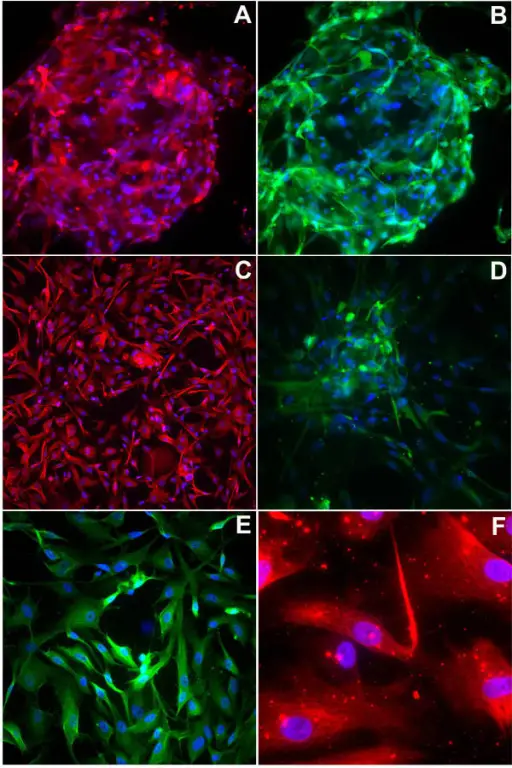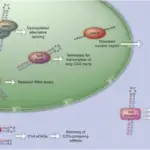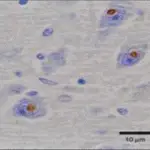Fragile X syndrome is a genetic disorder characterized by mild-to-moderate intellectual disability.
What is the Pathology of Fragile X Syndrome?
The pathology of Fragile X syndrome is:
-Etiology: The cause of Fragile X syndrome is a mutation of the fragile X mental retardation 1 (FMR1) gene on the X chromosome, most commonly an increase in the number of CGG trinucleotide repeats in the 5′ untranslated region of FMR1.
-Genes involved: Fragile X mental retardation gene on X chromosome.
-Pathogenesis: The sequence of events that lead to Fragile X syndrome: expansion of the CGG triplet repeat within the FMR1 (fragile X mental retardation 1) gene on the X chromosome. This results in silencing (methylation) of this part of the gene and a deficiency of the resultant protein (FMRP), which is required for the normal development of connections between neurons. FMRP is found throughout the body, but in highest concentrations within the brain and testes. The downregulation of GABA pathways, which serve an inhibitory function and are involved in learning and memory, may be a factor in the anxiety symptoms which are commonly seen in FXS.
How does Fragile X Syndrome Present?
Patients with Fragile X syndrome typically either male or female, but females with full FMR1 mutations may have a milder phenotype than males due to variability in X-inactivation, present at childhood. The symptoms, features, and clinical findings associated with Fragile X syndrome include intellectual disability, post-pubertal macroorchidism(enlarged testes), long face with a large jaw, large everted ears, autism, and mitral valve prolapse. .
How is Fragile X Syndrome Diagnosed?
Fragile X syndrome is diagnosed using DNA testing for fragile X syndrome. Karyotyping may reveal other chromosomal anomalies, and both a standard karyotype and DNA testing are suggested when a possible diagnosis of fragile X syndrome is considered.
How is Fragile X Syndrome Treated?
Fragile X syndrome is treated with speech therapy, behavioral therapy, occupational therapy, special education, or individualised educational plans, and, when necessary, treatment of physical abnormalities. Persons with fragile X syndrome in their family histories are advised to seek genetic counseling to assess the likelihood of having children who are affected, and how severe any impairments may be in affected descendants.
What is the Prognosis of Fragile X Syndrome?
The prognosis of Fragile X syndrome is fair. Life expectancy for FXS is 12 years lower than the general population and the causes of death are similar to those found for the general population.



